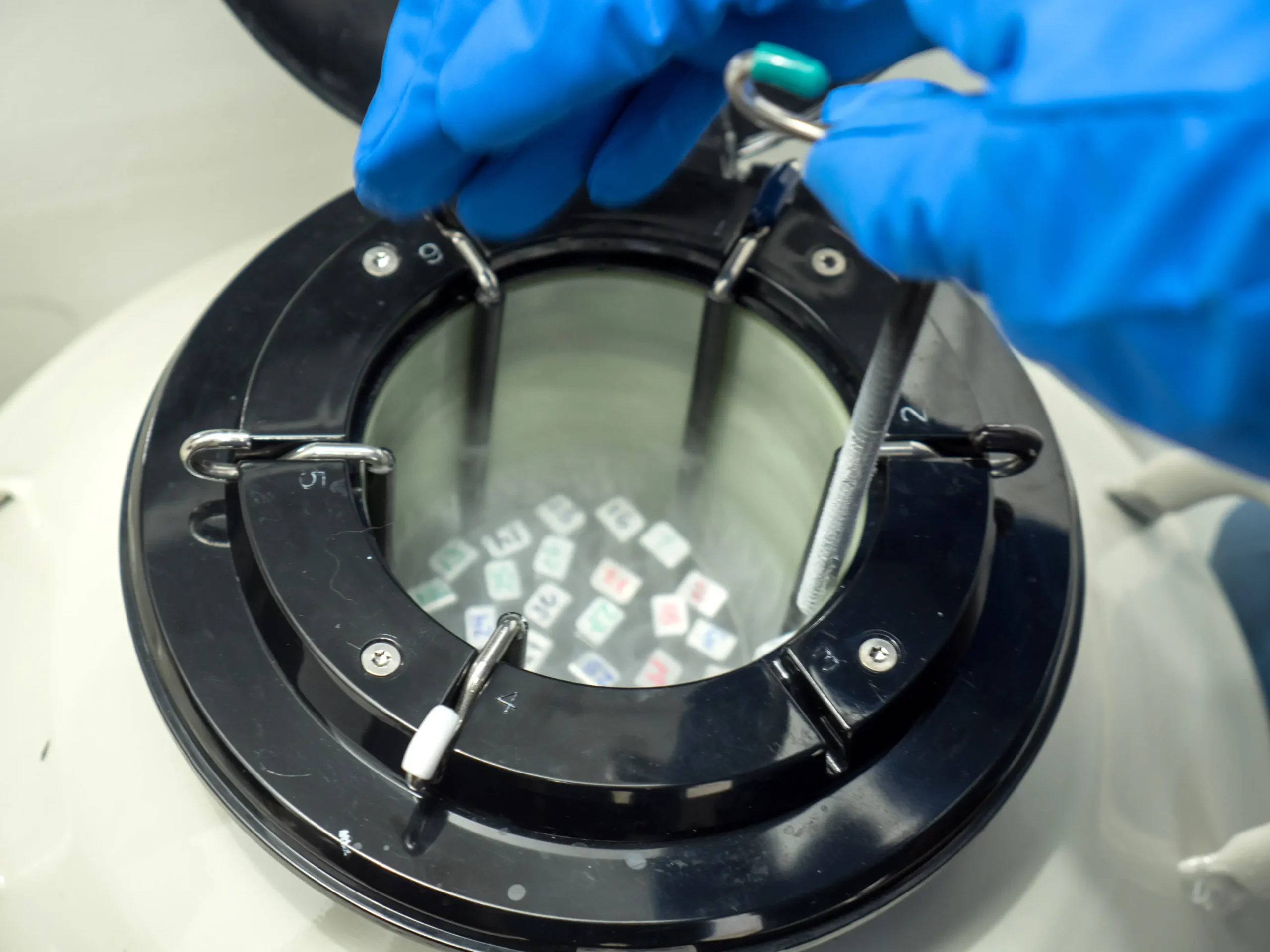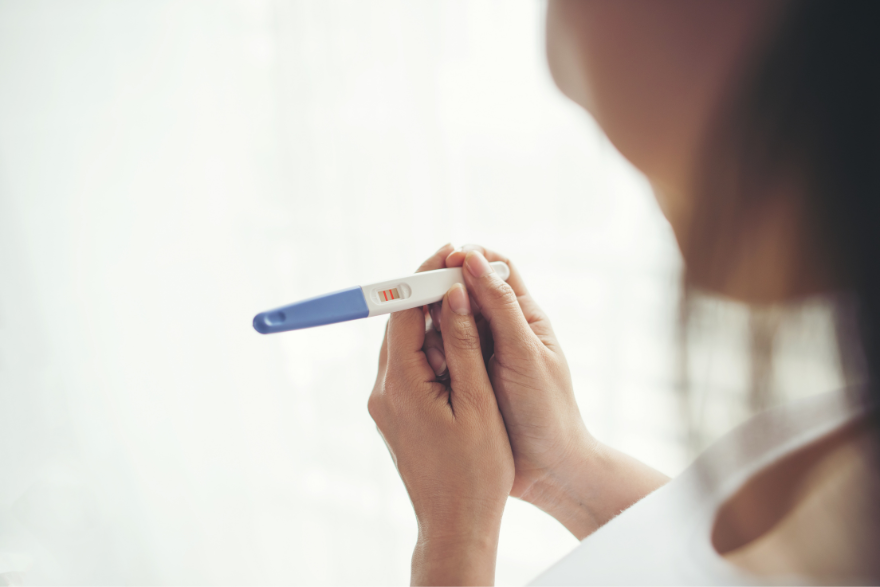When faced with a diagnosis of cancer, fear and uncertainty about what might happen and how it will be dealt with are the most common emotions among those patients who are about to embark on a journey of therapy and recovery.
There are many thoughts that go through the mind at this difficult time. However, while there are so many questions about treatments and adverse effects, fertility or the desire to have a child in the future (also) becomes an important area of concern for those who dream of becoming parents after they recover from cancer.
¿Why is fertility a concern when facing a diagnosis of cancer?
Treatments for cancer diagnoses are linked to chemotherapy or radiation therapies that affect male and female fertility by exposing the reproductive organs to radiation or very high doses of drugs/medications that affect the woman’s eggs/oocytes and the man’s sperm.
These types of therapies focus on attacking the rapidly dividing cells that produce cancer tumors. Nevertheless, the impact of these medications could indirectly affect the reproductive cells, diminishing reproductive potential.
The effect that this type of treatment could have on reproduction will also depend on the type or classification of the tumor, its location, the age of the patient, the doses of medications prescribed, the exposure to radiation and the part of the body receiving the radiation therapy. It is therefore important to talk to the treating physician about the risks of infertility and the possibilities that exist to preserve the eggs or sperm before starting a treatment for cancer.
¿How does a cancer treatment affect male fertility?
The most important factor in male fertility is the quantity and quality (morphology and mobility) of the sperm produced by the testicles as these are responsible for fertilizing the woman’s eggs to form an embryo and with it a pregnancy.
By exposing the male reproductive organs to treatments such as radiotherapy or chemotherapy, the testicles could be affected or the production of sperm could be altered, which would limit the possibility of conceiving.
The degree of harm caused by cancer treatments will depend on the impact they have on the spermatogonia (sperm stem cell), which is responsible for the production of sperm through spermatogenesis.
Testicular cancer, prostate cancer, lymphomas and leukemia are some of the cancers that most affect male fertility. That said, if you wish to have a child in the future, it is important to consult a fertility specialist when faced with a diagnosis of any type of cancer.
¿How does a cancer treatment affect female fertility?
In the case of women, the treatments used to attack the cancer directly affect the ovarian reserve or other organs of the reproductive system such as the endometrium or the uterus.
Infertility resulting from chemotherapy or radiation therapy is mainly due to the high radiation exposure in the woman’s pelvic area, which could affect the quality of the eggs and the functionality of other organs. In addition, high doses of medications may cause the female reproductive cells to be altered, hindering the release of eggs during the menstrual cycle by reducing or depleting the ovarian reserve.
It should be noted that as a consequence of radiotherapy and/or chemotherapy, and their effect on the oocytes, it is possible to develop a premature or early menopause (depending on the women´s age) that leads to infertility. However, it is also important to know that there are options to protect the ovaries before starting a treatment of this type. It is essential to consult a specialist to discuss the options that exist for the care of the reproductive system.
¿What options exist to preserve fertility in the face of a diagnosis of cancer and its treatment?
There are currently different alternatives in the area of assisted reproduction to preserve the eggs or sperm of those patients who are about to begin cancer treatment.
In this regard, it is essential that the decision to make use of these alternatives be agreed upon by the oncologist and a fertility specialist, given that all the pros and cons of these procedures must be analyzed.
In women:
- Cryopreservation of eggs and/or embryos: this technique, also known as vitrification, consists of extracting healthy eggs from the woman and then sending them to an IVF laboratory to be processed and stored at low temperatures. This will allow them to be preserved until the moment the woman decides to begin the try for a pregnancy.
- Cryopreservation of the ovarian tissue: this procedure consists of the extraction of a part of the ovarian tissue or the entire ovary through surgery. It is then stored in the laboratory to preserve its function and in this way preserve reproductive potential.
- Medical treatment to protect the ovaries: the use of GnRH agonists is recommended to suspend the activity of the ovaries and so protect them during chemotherapy. After the cancer treatment is completed, this treatment is stopped and the ovaries have a higher chance of returning to their normal activity..
- Surgical procedure to protect the ovaries: this is recommended for patients who are to undergo radiation therapy in the pelvic area, but do not require chemotherapy; it consists of what is referred to as ovarian transposition. This surgery moves the ovaries out of the field of radiation. After the treatment is completed, the ovaries are placed back in their natural position.
In men:
- Sperm cryopreservation: this technique allows sperm to be frozen for long periods of time in order to preserve their fertility. The sample is taken by means of a sperm collection by ejaculation or through sperm extraction and aspiration procedures.
- Sperm cryopreservation: this technique allows sperm to be frozen for long periods of time in order to preserve their fertility. The sample is taken by means of a sperm collection by ejaculation or through sperm extraction and aspiration procedures.
If you are currently living with a cancer diagnosis and are looking for alternatives to preserve your fertility, please don’t hesitate to contact us. We are here to accompany you and take care of you!
Medellín: (4) 268 8000
Bogotá: (1) 746 9869
Cartagena: (5) 693 0434
Pereira: (6) 340 1709 – 311 7706212
Manizales: (6) 8962220
REFERENCES:
ESHRE European Society for Human Reproduction and Embryology. Information on the preservation of female fertility. Version 2020.
American Cancer Society. How to preserve fertility in men with cancer. 2020. Available at: https://www.cancer.org/es/tratamiento/tratamientos-y-efectos-secundarios/efectos-secundarios-fisicos/efectos-secundarios-sobre-la-fertilidad-y-la-sexualidad/la-fertilidad-en-los-hombres-con-cancer/preservacion-de-la-fertilidad-en-los-hombres.html
American Cancer Society. How cancer and cancer treatment can affect fertility in women 2020. Available at: https://www.cancer.org/es/tratamiento/tratamientos-y-efectos-secundarios/efectos-secundarios-fisicos/efectos-secundarios-sobre-la-fertilidad-y-la-sexualidad/la-fertilidad-en-las-mujeres-con-cancer/como-el-tratamiento-contra-el-cancer-puede-afectar-la-fertilidad.html









